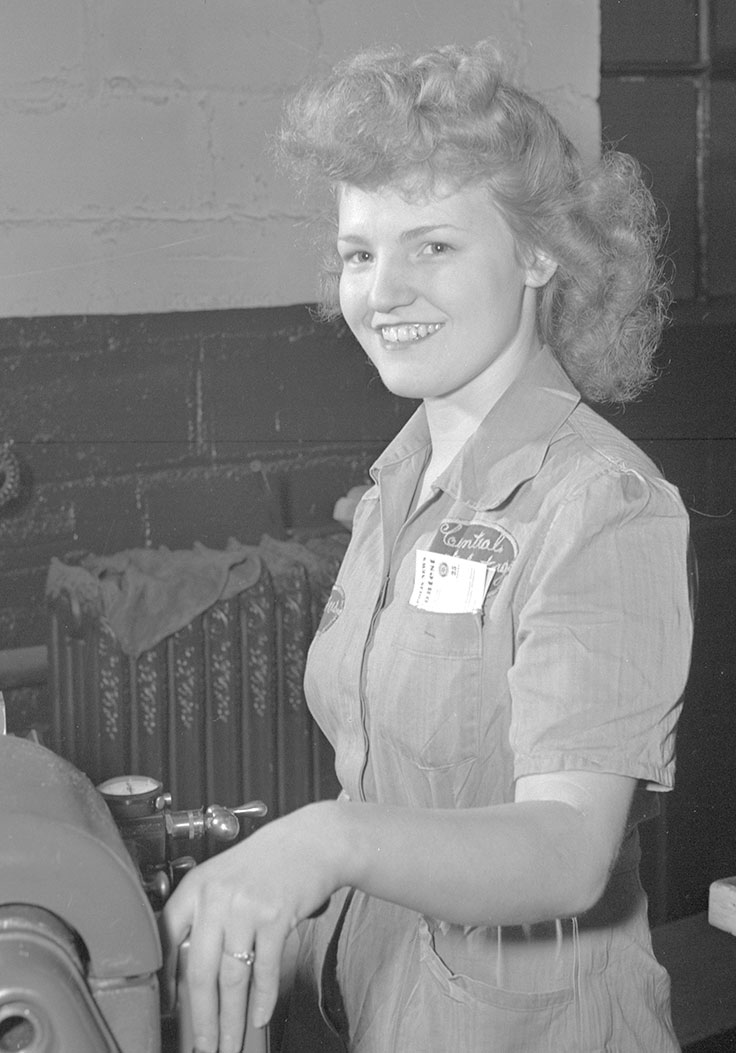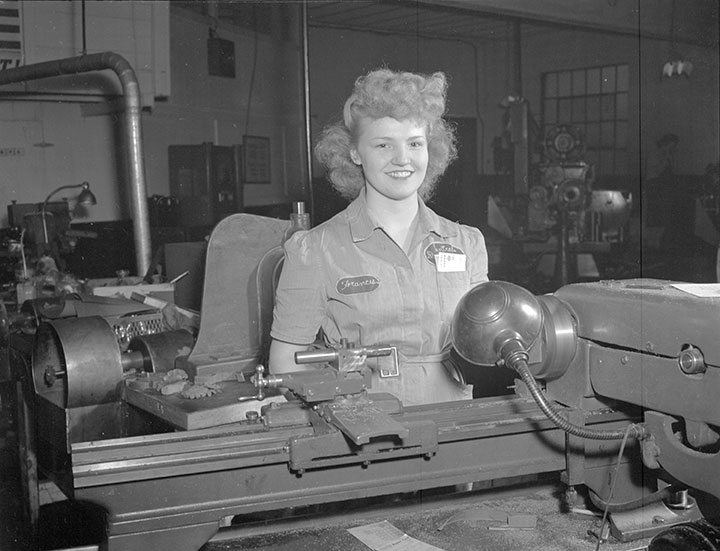
Purchase Tickets
Frances the Riveter
November 14, 2018

Here at the Indiana Historical Society, We Do History. That may seem like a blanket statement, but it’s necessary in order to describe the wide range of things we do here every day to make the past relevant for our visitors and patrons. In the library reference department, for example, we respond to more than 700 Indiana-related questions in an average year, from people all over the world.
One of my favorite parts about doing history is putting the pieces together, connecting the dots for people and showing the real humanity of our forebears – their thoughts, their dreams, their struggles and motivations. My position as a collections assistant makes that easier for me; our collections are tangible, hard evidence of lives lived.
Recently we were contacted by someone looking for the names and stories of “Rosie the Riveters” in Indianapolis – women hired during World War II to fill positions normally held by men in order meet the material demands of the war effort. This query eventually led me to the 1943 Larry Foster photo shown here.

The patch on the woman’s coveralls tells us that her name was Frances, but that was all we knew at the time. After a little digging, I uncovered more of her story.
As an experienced news photographer, Larry rarely took such photographs without a reason. That’s part of what makes his photos so fun to research, and this one was no exception. Frances, just 18 years old at the time, had recently submitted her name to the Marion County “Victory Queen” contest, in which women working on the homefront competed to sell the most war bonds to their co-workers. That caused Larry to seek her out. He found her at the Central Distributing Company in Indianapolis, where she operated a lathe. Central normally manufactured vending machines but had obtained a war contract to produce aircraft parts.
Though parts of young Miss Carroll’s story were exaggerated in the press (by her or by the journalists?), it was true that both her father and one of her brothers were veterans of the military. It was also true that her father had passed away four years previous. Her stepmother, who had worked in a laundry service for many years, now worked at the same war plant she did.
Doing History means a lot of things. Knowing these details about Frances’ story allow me to better imagine her life and motivations. That’s what makes this photo of her really come alive for me, and that’s what we strive to do for all of our patrons and visitors.









